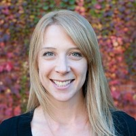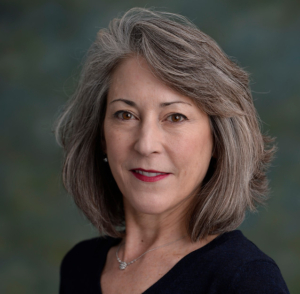Humentum established the Young Professionals Mentoring Program in early spring 2021. The purpose of the program, as articulated by Humentum, is to foster relationships between those who are newer to the INGO world and those with more experience, and to provide support and guidance as the younger professionals weigh their future employment options. The intent was for both participants to grow through the program.
In spring 2021, many of us had been working remotely for a year, and video calls had become our new normal. While not the traditional way to start a mentoring relationship, the virtual program made it possible for those of us living in different cities to participate. While building a virtual relationship could have proved challenging, we had already been building the remote engagement muscle for a year, and COVID had already pushed our organizations to find and invest in technology to meet our evolving needs.
In April, we – Amanda Johnson and Jess Ogden – started our mentoring engagement – one (Amanda) as a younger professional, based at John Snow, Inc., providing monitoring and evaluation support to a global tuberculosis control program funded by USAID, and the other (Jess) a more senior professional, leading a multi-functional team at the International Center for Research on Women (ICRW).
As we reflected on our mentorship experience, we agreed that there were two key factors that contributed to our success – mutual commitment, reliability, and the willingness to be vulnerable with each other, and setting out with concrete goals to work on together. We sat down together this spring to discuss our experiences.
Mutual commitment, reliability, and vulnerability
Amanda: This was my first time participating in a mentoring program. Jess’s commitment to getting us organized from the get-go by establishing a recurring meeting schedule, reviewing my goals, and showing genuine enthusiasm for mentoring was really motivating. We also both made it a point to prioritize our monthly video calls. I think this was critical to keeping momentum and building our relationship. The nice thing about virtual mentoring is that you don’t lose any time commuting, but that can also make it feel easier to cancel or ask to reschedule at the last minute. My advice, particularly for younger professionals who might have less autonomy over their day-to-day schedule, is to make sure your supervisor is on board. Be clear about the time commitment it will require, your goals, and then agree on how to prioritize any last minute or urgent tasks that might conflict with your scheduled meetings.
A second factor that ended up being more important than I would have thought at the start was that Jess and I don’t work for the same organization, and our two organizations take up fairly different spaces in the INGO world, so we had few overlapping contacts. While we always made sure to protect anonymity, it helped that we could share challenges, past or present, fairly openly. It allowed for greater vulnerability and objectivity on both our parts, something that would have been more difficult if Jess and I had been working at the same company or knew all the same people.
Jess: I confess my interest in participating in this program was fairly self-serving initially. I come from an academic background and really miss teaching, so I jumped at the chance to exercise this muscle! I also feel passionate about supporting and cultivating the next generation of practitioners and scholars in international development. In addition, I was able to draw on my experience as a leader, creating opportunities within my team for younger colleagues to identify their unique value-add and to find ways to offer them autonomy over domains of work that best leverage their talent and advance their interests. I also had the good fortune to benefit from a program at ICRW to receive some coaching myself. That experience provided me with tools and approaches to draw upon in my interactions with Amanda. They gave me the confidence and, to some extent, the skills to engage productively in this program.
As Amanda notes, establishing our mutual commitment, and creating some structure to support that commitment, were very important to our success. Having the recurring meeting on our calendars was critical – we’re both so busy, and it took the need to remember to schedule something out of the equation. As with any relationship, flexibility is critical, and when a conflict arose, we worked together to find an alternative date that worked. This structure created reliability, accountability, and a strong foundation of trust: we knew we would show up. This foundation of trust also created the conditions in which we could be authentically present with each other, more vulnerable, asking the right questions of each other, while addressing insecurities and fears that can really get in the way of making the kinds of changes you really want to make in your life. Again, it helped that we work in different organizations; so, were able to be fully candid, without fear of repercussions.
Concrete goals and objectives to work toward
Amanda: Before the program started, Humentum had all the mentees list 2-3 goals we wanted to work on with our mentors. Particularly because our mentor/mentee relationship was virtual, having a few goals in mind to get us started was really helpful. That being said, my initial goals were broad and evolved over time. Ultimately, I came up with a very specific, time-bound objective. This really helped keep our meetings focused and productive in a way that more generic goals might not have. At the end of each meeting, we’d talk about what I would work on for our next session. It was great to have the gentle accountability to get things done.
Jess: I agree that it was great guidance to encourage mentees to come to the program with some specific goals in mind. It’s also very natural for those goals to evolve over time. Sometimes just saying something out loud to an informed but neutral party can really help you decide whether that is actually something you want to strive for – or not! As a mentor I believe the most important role you can play is as an active listener. Usually, people have the answers they need already, they just need a solid and empathetic sounding board to help them uncover those answers. I found that, with Amanda, the most useful thing I could do was to really listen to her, to ask good questions, and sometimes share a story or two from my own experience that might shed some light on the challenges she was wrestling with.
Summing it Up
Having now gone through the program with Humentum – and risen above the challenges of remote mentorship and seen its value – we highly recommend Humentum maintains the option for remote engagement for the program going forward. Remote mentorship can address equity issues that arise when mentors are restricted to only people in one’s immediate geographic circle by opening up a bigger, more diverse pool of mentors and mentees, while providing all the same relational and career benefits as in-person mentoring.
Amanda: This was a great experience. I feel fortunate to now count Jess as a mentor and a friend, and her support has motivated me to be a mentor someday as well. The program really changed my perspective on what’s possible with remote or virtual relationship building. Pre-COVID-19, I don’t think I would have pursued a mentorship opportunity if it was fully remote. Now, I know success is far more about shared commitment and goal setting than it is about an in-person meeting.
Jess: First of all, it was just a treat to get to know Amanda! It is not easy to make new friends at any time, but particularly during the forced separation of COVID. It was also reaffirming to learn about her struggles and triumphs and to see so many parallels with my own experience. There was something special about this relationship that created a space for connection that would not have otherwise existed.


